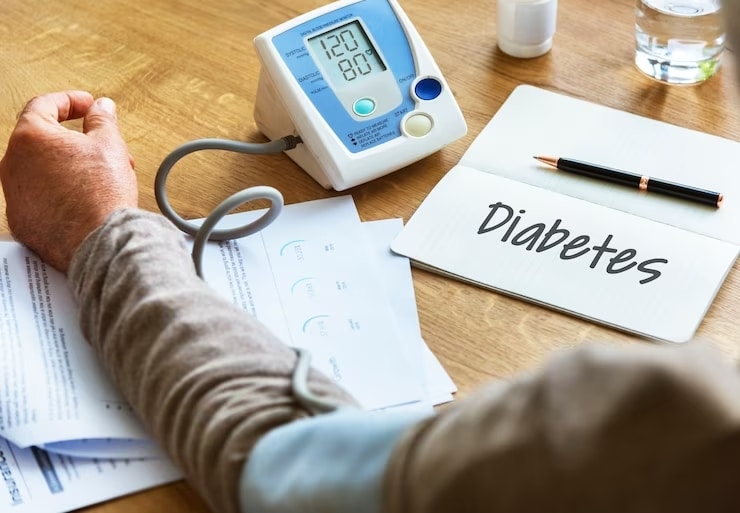Avoid Eating Fast Foods : Eating fast food can be an unhealthy habit. Fast food tends to be high in fat, calories, sodium and sugar while lacking essential vitamins, minerals and fiber that our bodies need for good health. Too much fast food consumption may lead to weight gain, high cholesterol and other health concerns such as diabetes, heart disease or cancer. Furthermore, many fast food restaurants use poor-quality ingredients like artificial colors and flavors which have been linked with serious issues including diabetes, heart disease and cancer.
Fast food may contain ingredients with adverse health impacts such as trans fats, preservatives and excessive salt that could be detrimental to your wellbeing. Therefore, it’s important to monitor how much fast food you’re consuming and make healthier choices where possible.
1. Obesity

Fast food may provide an easy and delicious solution to curb hunger, but there can be serious repercussions from regularly indulging. Fast food typically contains excessive amounts of fat, sugar and sodium which may contribute to obesity as well as other health concerns. Regularly eating fast food also contributes to an unhealthy lifestyle because these fast meals tend to lack essential vitamins and nutrients while being high in calories.
Fast food’s high fat content has been linked with cardiovascular issues like high cholesterol levels, heart disease and stroke. Furthermore, its addictive qualities make it hard to resist indulging. Given these potential health risks associated with fast food consumption, it would be wiser to limit consumption as much as possible.
2. Type 2 Diabetes

Fast foods may be convenient and delicious, but they can also be dangerously detrimental to our health. Frequent consumption of fast food can have disastrous repercussions for our bodies; one alarming repercussion being an increased risk of type 2 diabetes due to high amounts of trans-fats, sugar and sodium found in fast food meals.
Not only can fast food meals contain excessively high calorie levels, which may contribute to weight gain and increase the risk of other chronic diseases. Consuming fast food may increase high blood pressure, heart disease, stroke, and various forms of cancer risk – so it would be wiser to limit or avoid its consumption in order to lower these alarming risks.
3. High Blood Pressure

Fast foods may be attractive due to their convenience and affordability, yet studies have demonstrated their danger. Constant consumption can cause numerous serious health problems including high blood pressure. Eating fast food regularly raises trans fats and salt intake levels in your body – both of which increase your risk for stroke or heart attack.
Fast foods contain many unnecessary calories and lack essential nutrients, contributing to weight gain and obesity, which in turn can increase blood pressure levels. As such, it is imperative that individuals refrain from eating fast food as often as possible.
4. Heart Disease

Fast food can be an unhealthy diet that contains harmful fats, processed carbohydrates, and sodium – elements which increase your risk of heart disease, type 2 diabetes, high cholesterol levels and blood pressure. Furthermore, fast food may contain harmful chemicals like preservatives, artificial colors or flavorings which may be hazardous to health.
Eating too much fast food can contribute to weight gain, placing additional strain on the heart. Furthermore, fast food is often devoid of essential fiber-rich vitamins and minerals that promote body wellness; all these factors serve as reasons why avoiding fast food should be prioritized.
Consistent fast food consumption increases your risk for cardiovascular disease, diabetes, high cholesterol and blood pressure issues as well as weight gain. Due to chemicals present, lack of nutrients and unhealthy fats contained in fast food products – it should be avoided at all costs!
5. Digestive Problems

Fast Food Can Cause Digestive Problems
Fast food has quickly become one of the most popular food choices, yet one of the least healthy. Eating too much fast food can have serious repercussions for health – high in calories, fat and sugar but lacking nutritional value means not only weight gain but also digestive issues and even increased risks such as cardiovascular disease, high blood pressure, diabetes or stroke.
Fast food consumption can also aggravate inflammation in the body, potentially putting individuals at greater risk for serious medical conditions. Furthermore, too much fast food consumption may lead to nutritional deficiencies as it doesn’t contain essential vitamins and minerals for good health. Overall, it is best to limit or avoid fast food consumption in order to keep yourself and your body safe from possible serious risks.
6. Fatigue

One of the main draws to avoid fast foods is fatigue. These meals often contain high amounts of fat and calories that can leave you feeling lethargic and lethargic throughout the day, and too many of these types of meals could even lead to weight gain, leaving you even more lethargic and lethargic than ever. Furthermore, fast food includes chemicals used as preservatives which may disrupt balance within your body, leading to further fatigue – disrupting sleeping patterns further heightening this effect and leading to fatigued throughout your day. These factors make fast foods poor choices so it would be wiser for all of us to steer clear from fast foods altogether in order to prevent fatigue as well as any negative health repercussions associated with them!
7. Increase Risk Of Depression

Fast foods have become increasingly convenient and widespread over time for busy lifestyles, but there are many frightening reasons to avoid them. Fast food contains unhealthy fats, salt and sugar that may contribute to serious health conditions like obesity, diabetes and heart disease; additionally they often lack essential nutrients needed for the body’s proper function such as vitamins and minerals – plus research has suggested consuming fast food regularly can also increase depression risks as it disrupts hormone balance in our bodies – so it is wise to limit how often fast foods we eat. For these frightening reasons it is wise to remain aware when eating fast food fast!
8. Kidney Disease

Fast food can be a serious health hazard, particularly for those living with chronic kidney disease. Consuming fast food on a regular basis has been found to increase their risk by as much as 40%. High levels of sodium, saturated fat and sugar found in most fast foods may contribute to high cholesterol, high blood pressure and diabetes – all conditions known to damage kidneys in turn. Furthermore, such foods often contain preservatives and additives that cause inflammation within kidney tissue as well as further harming it.
Fast food increases your risk of kidney disease and obesity, heart disease and stroke – as well as digestive issues such as constipation, indigestion and acid reflux. Therefore it’s wise to limit how often you eat fast food as much as possible.
9. Increase Risk Of Cancer

Fast food can be a convenient source of fuel, but the health risks they present have become increasingly apparent. Perhaps most frightening among these is an increased risk of cancer; many fast foods contain carcinogenic ingredients like processed meats and hydrogenated oils; they may also contain pesticides, hormones or chemicals known to increase cancer risks.
These foods are usually loaded with unhealthy fats that increase your risk of obesity, heart disease and other serious medical conditions. Furthermore, frequent consumption has been linked to diabetes and other chronic illnesses; therefore it would be wiser to limit fast food consumption as much as possible.
10. Addiction
Fast foods provide convenient sources of nutrition, but they may be detrimental to our health and wellbeing. Fast foods contain unhealthy fats, sodium levels and additives which may lead to addiction and health complications; consistently consuming fast food may increase obesity risk as well as heart disease, diabetes and other chronic health conditions.
Fast food’s high sodium content can lead to dehydration and electrolyte imbalances that lead to fatigue, dizziness, and heart palpitations. Eating fast foods also promotes unhealthy lifestyle habits by encouraging excess eating without regular physical exercise.
Fast food addictions can be difficult to shake and are often used as an escape mechanism by those dealing with depression and anxiety. Therefore, to maintain a healthier lifestyle it is wise to limit fast foods as much as possible.
Conclusion
Fast foods can be an integral part of daily life, yet they should be consumed with caution. Fast food can have devastating repercussions for our health, contributing to obesity and other serious ailments. In addition, fast food contains high concentrations of sodium and trans fats – both which increase heart disease risk significantly.
Fast food contains numerous preservatives and additives that may prove hazardous in the long run, making it wiser to stay away from fast food as much as possible in order to remain fit and healthy. To remain at your optimal fitness levels it is wise to restrict consumption as much as possible of fast food items.
Also Refer : 7 Health Benefits of Carrots You Can’t Live Without

